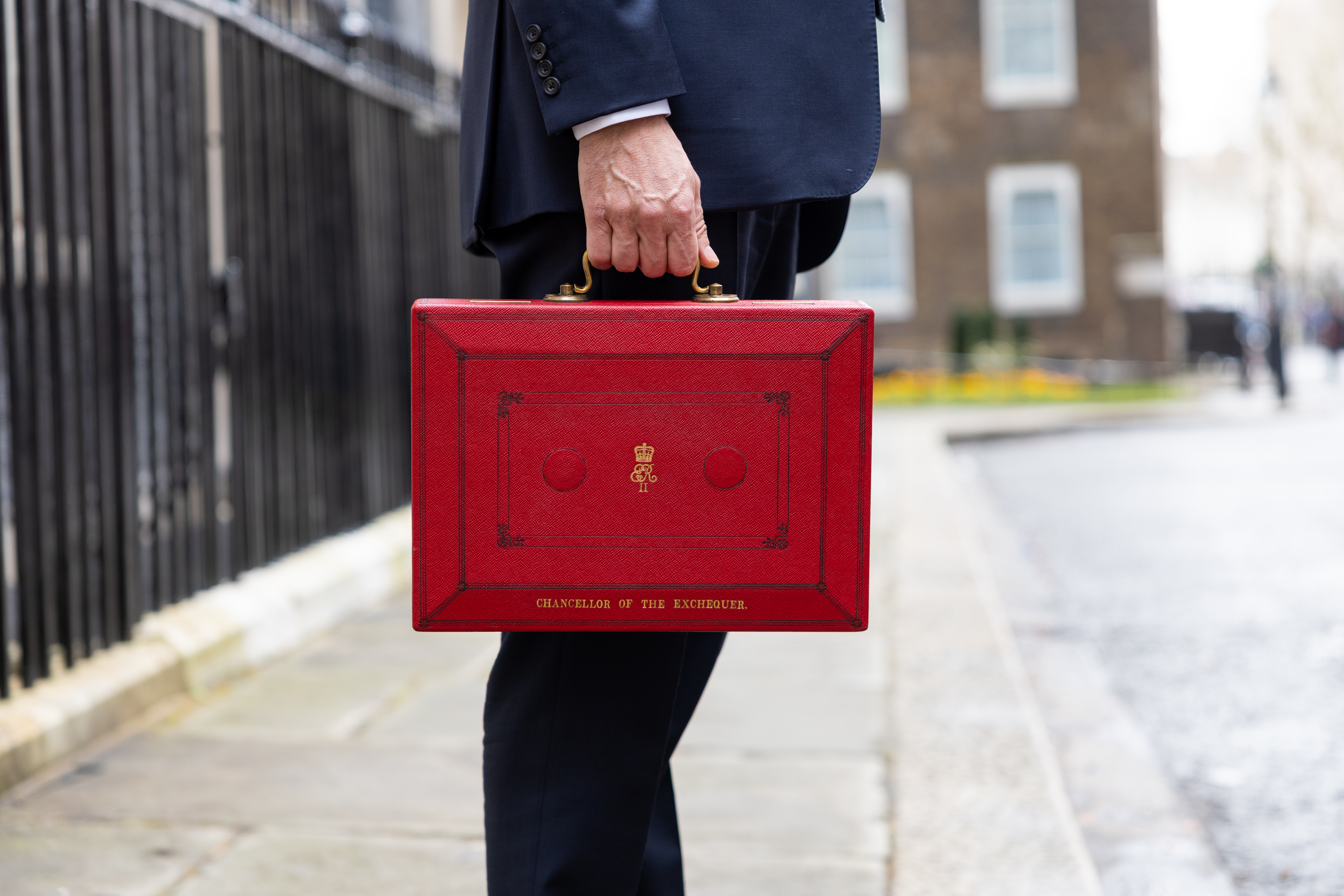Spring Budget 2024
PolicyEngine estimates the impact of the UK Spring Budget.

Contents
Spring Budget 2024 reforms
National Insurance Contributions (NICs)
High Income Child Benefit Charge
Fuel Duty
Other reforms
Reform outcomes
Budgetary impacts
Distributional impacts
Household impacts
Conclusion
Today, Chancellor of the Exchequer Jeremy Hunt announced the Government's Spring Budget 2024. This budget includes a variety of reforms, delineated by the Treasury
In this post, PolicyEngine will model the budgetary, societal, and distributional impacts of the budget's reforms to National Insurance, the High Income Child Benefit Charge, and the fuel duty. To view the impacts of these reforms upon society in PolicyEngine's interactive reform modeling tool, visit
Spring Budget 2024 reforms#
The Spring 2024 Budget includes reforms to various different segments of the tax code. Of these, PolicyEngine will be modelling the following in this article:
National Insurance Contributions (NICs)#
- Lowering the main rate of Class 1 NICs from 10p to 8p
- Cutting the main rate of Class 4 self-employed NICs from 8p to 6p
High Income Child Benefit Charge#
- Increasing the income threshold for the charge from £60,000 to £80,000
- Increasing the charge's taper range from £60,000 to £80,000
Fuel Duty#
- Extending the fuel duty's 5p rate cut for 12 months
- Forgoing the fiscal year 2024-2025 RPI increase for the fuel duty
When modelling these reforms, PolicyEngine assumes they take effect on 1 January 2024 and evaluates their impacts over calendar year 2024, differing slightly from Treasury's estimates, which are aligned with the fiscal calendar.
Other reforms#
The Chancellor's Spring Budget 2024 also codifies a number of reforms not included in the PolicyEngine model, such as a freeze on the alcohol duty, changes to the non-domiciled taxation regime, and a duty on vaping products. These reforms will not be modelled in this article.
Reform outcomes#
Table 1 below presents PolicyEngine's estimate of each policy reform provision's key household, budgetary, and societal impact metrics. Cumulatively, the reforms are modelled to cost HM Treasury a total of £14.1 billion for calendar year 2024 and raise the net income of 77.4% of British households, particularly those with higher pre-tax income. The policies also present ambiguous impacts upon the poverty rate, while raising inequality by 0.4%.
Table 1: Household and societal impacts of each Spring Budget 2023 reform provision
Budgetary impacts#
The PolicyEngine microsimulation model projects that the six reforms covered in this article will cost a combined
Table 2 below presents PolicyEngine's broader estimates over 2024, 2025, and 2026, as compared to HM Treasury's
Distributional impacts#
The six modeled reforms of the Spring Budget 2023 would increase the net income of households by 1.2% on average. Under this reform, top-earning deciles would disproportionately benefit. Decile 9, the biggest beneficiary in relative terms, would experience a 1.9% gain in disposable income, while deciles 1 through 3 receive between 0.3% and 0.4%. In absolute terms, this equates to a £46 increase in post-tax income for earners in the lowest decile and a £1,402 increase for those in the top decile (£1,386 for those in decile 9). Similarly, 99.6% of earners in decile 9 and 77.4% of earners in decile 10 experience an increase in net income under these reforms, while 36.2% of earners in the lowest decile gain.
Household impacts#
For a single person with only employment income, the six reforms evaluated in this article produce a benefit if they earn at least £12,750, producing a maximum benefit of £754 if the individual earns £50,270 per year. This assumes the individual consumes no fuel impacted by the fuel duty freeze; if the same person were to spend the UK average of
Change to household net income by employment income for a single person
For the same hypothetical person, if their income falls within the range specified above, the tax reforms analysed here would yield a 2% drop in their marginal tax rate; all others would see no change. View this household in the interactive PolicyEngine tax calculator
For a married couple with two children, the impacts of this reform package are slightly more complext. Again, these reforms would produce no increase to post-tax income until the head of household earns £12,750 per year, after which the families net income will rise, until reaching a peak of £2,874 when the head makes £60,000. After this point, the post-tax benefit drops as the High Income Child Benefit Charge phases in, until the end of its taper at £80,000, at which all households see a net income increase of £754. These figures do not include the impact of the fuel duty freeze. View this household in the interactive PolicyEngine tax calculator
Change to household net income by employment income for a married couple with two children
Conclusion#
PolicyEngine estimates the cost of the Spring Budget 2023's reforms to National Insurance, the High Income Child Benefit Charge, and the fuel duty at £14.1 billion in 2024. Cumulatively, these reforms will raise the net income of 77.4% of British households, with a disproportionately positive impact upon higher-income households. We also find a small effect on poverty reduction, as well as a 0.5% increase in inequality. For readers interested in generating their own society-wide tax reform simulations or better understanding how these reforms will impact their household in the coming fiscal year, we invite you to use our personalised

nikhil woodruff
PolicyEngine's Co-founder and CTO

anthony volk
Full-Stack Engineer at PolicyEngine

Subscribe to PolicyEngine
Get the latests posts delivered right to your inbox.
PolicyEngine is a registered charity with the Charity Commission of England and Wales (no. 1210532) and as a private company limited by guarantee with Companies House (no. 15023806).
© 2025 PolicyEngine. All rights reserved.